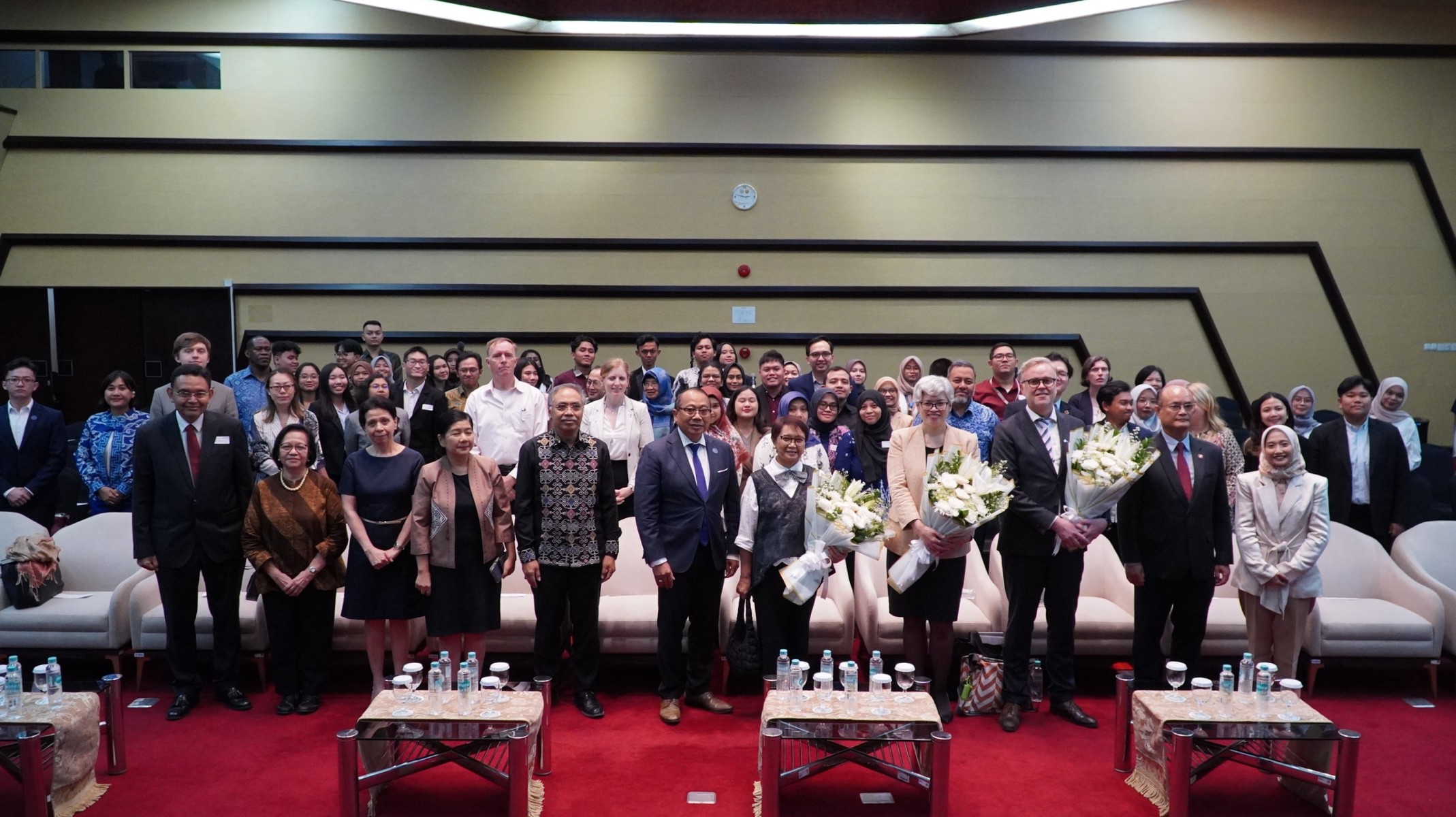ASEAN-IPR Discussion Series 2024, Session 3 - Fostering Water Diplomacy: Advancing ASEAN’s Regional Water Security Agenda
Thursday, 23 January 2025, ASEAN Secretariat
Jakarta, Indonesia
The ASEAN Institute for Peace and Reconciliation (ASEAN-IPR) successfully conducted its third session of the ASEAN-IPR Discussion Series on 23 January 2025, under the theme of "Fostering Water Diplomacy: Advancing ASEAN's Regional Water Security Agenda". This timely discussion, supported by the Canada Fund for Local Initiatives (CFLI), gathered a total of 242 participants both online and in-person at the ASEAN Secretariat.
The discussion addressed the escalating challenges posed by transboundary water resources in Southeast Asia, emphasising the urgent need for collaborative action in the face of climate change and regional water security pressures. The discussion aimed to deepen understanding of water diplomacy and its role in enhancing regional peace and security, as well as share best practices to enhance cooperation within the ASEAN framework.
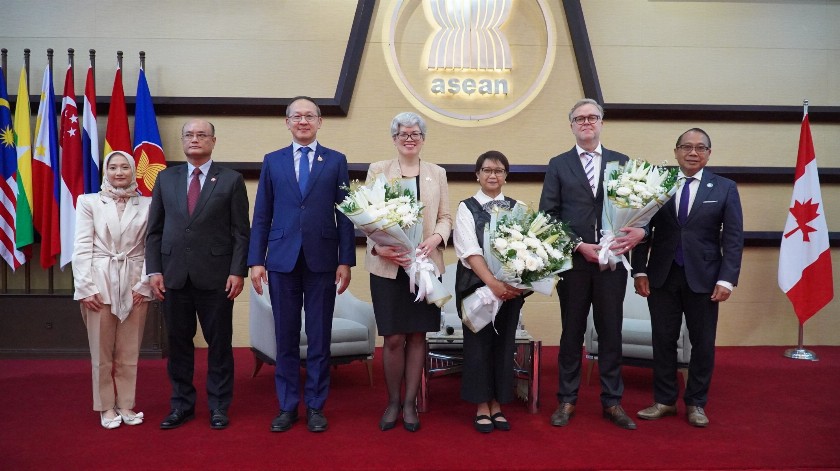
The Executive Director (ED) of ASEAN-IPR, Mr. I Gusti Agung Wesaka Puja, opened the session by highlighting the significant implications of water security on regional peace and stability. He underlined the need for robust collaborative actions to mitigate these impacts, especially in geopolitically sensitive areas like the Mekong Sub-Region and the South China Sea.
In her welcoming remarks, Ambassador of Canada to ASEAN, H.E. Vicky Singmin, underscored importance of collective efforts to address the global water crisis, aligning with the United Nations (UN) Sustainable Development Goal 6, which advocates for clean water and sanitation for all. She also underlined the need for strengthened water diplomacy through deeper cooperation and resilience.
The session featured a keynote address by H.E. Retno L.P. Marsudi, UN Secretary-General’s Special Envoy on Water, who underlined that the ASEAN Human Rights Declaration placed emphasis on water as a fundamental human right. She presented alarming projections, including an 8% GDP decline in high-income countries and even steeper declines in low-income countries by 2050 due to disruptions in the hydrological cycle. She further introduced the 'Triple A' strategy — Advocate, Align, and Accelerate — as a roadmap to advance water-related actions within the ASEAN framework and beyond.
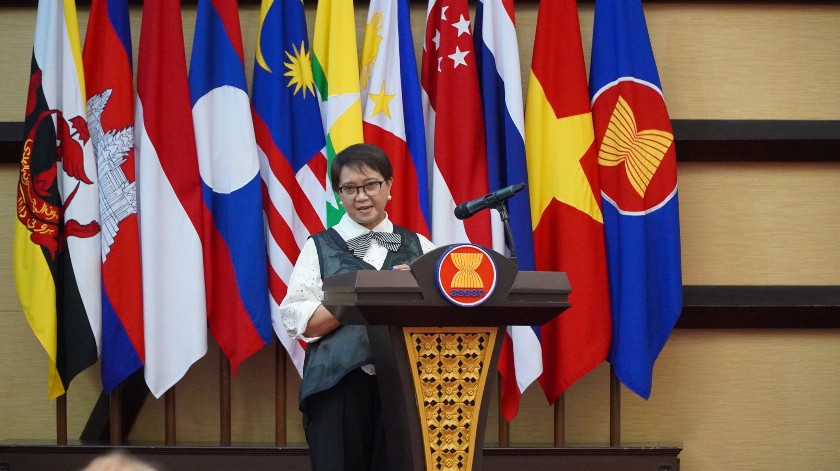
The Finland Special Envoy for Water, H.E. Antti Rautavaara, shared insights on the global state of transboundary waters, noting that these have historically been sources of cooperation rather than conflict. He discussed specific challenges faced by the Mekong region due to environmental changes and highlighted the essential role of ASEAN in facilitating regional dialogue and cooperation for sustainable transboundary water management. He further highlighted the importance of building trust and collaborative frameworks to ensure the fair and sustainable use of shared water resources.
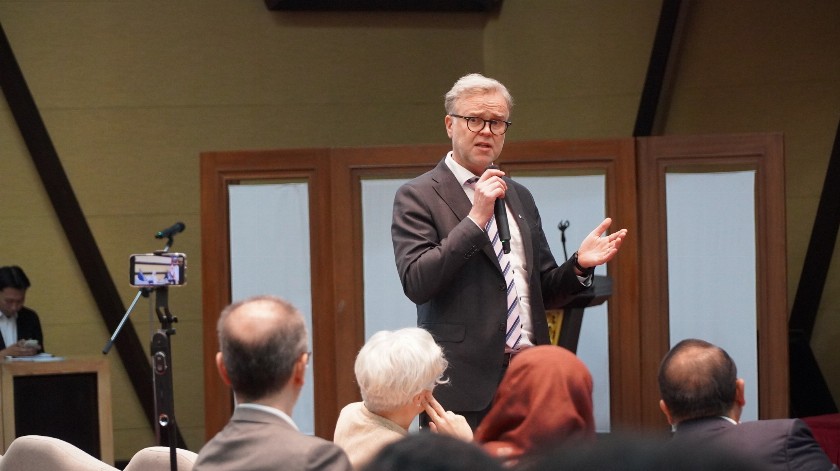
Following the two keynotes, a panel discussion was convened, moderated by Louise Maryonoputri, Global Water Partnership Southeast Asia (GWP-SEA). The panel featured Dr. Vong Sok(Head of the Environment Division, ASEAN Secretariat) and Dr. Surasri Kidtimonton (Chairperson, Mekong River Commission Joint Committee for 2024). They discussed environmental challenges such as water scarcity, pollution and water competition over water resources in Southeast Asia, emphasising the need for an integrated approach to water resource management that includes all stakeholders.
Dr. Vong Sok elaborated ASEAN Secretariat’s efforts in sustainable water resource management, emphasising the need for enhanced capacity building, data monitoring, and institutional frameworks. Dr. Surasri Kidtimonton highlighted the successful frameworks and cooperation models under the Mekong River Commission that have significantly contributed to regional water diplomacy and security. He detailed the MRC’s framework under the 1995 Mekong Agreement, which has fostered cooperation and sustainable water resource management among its member countries; Cambodia, Lao PDR, Thailand and Viet Nam.
The two speakers at the panel also emphasised the significance of the ASEAN-MRC Water Security Dialogues conducted in 2021 and 2024. The initial Dialogue in 2021 resulted in crucial recommendations focusing on policy enhancement, improved coordination, partnership development, resource mobilisation, and technological advancements. Conversely, the subsequent Dialogue in 2024 recognized the pivotal roles of technology, artificial intelligence (AI), and youth engagement in driving actionable outcomes.
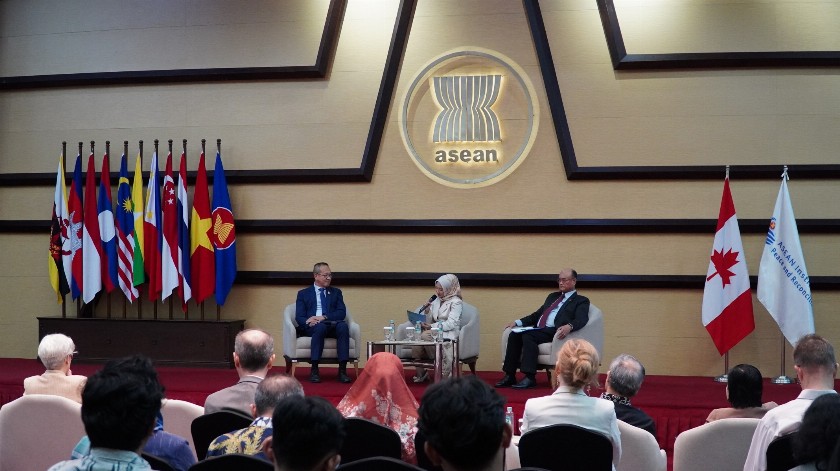
The last session of the ASEAN-IPR Discussion Series 2024 concluded with a strong call for continued and enhanced cooperation amongst ASEAN Member States, ASEAN’s partners, and the broader international community. The discussions and strategies outlined during the session are set to mark a significant step forward in ASEAN’s commitment to addressing water security challenges through diplomacy and cooperation, setting a precedent for regional and global efforts in sustainable water management. Stay connected through ASEAN-IPR’s website and social media platforms for updates on the Institute’s activities.
*******




